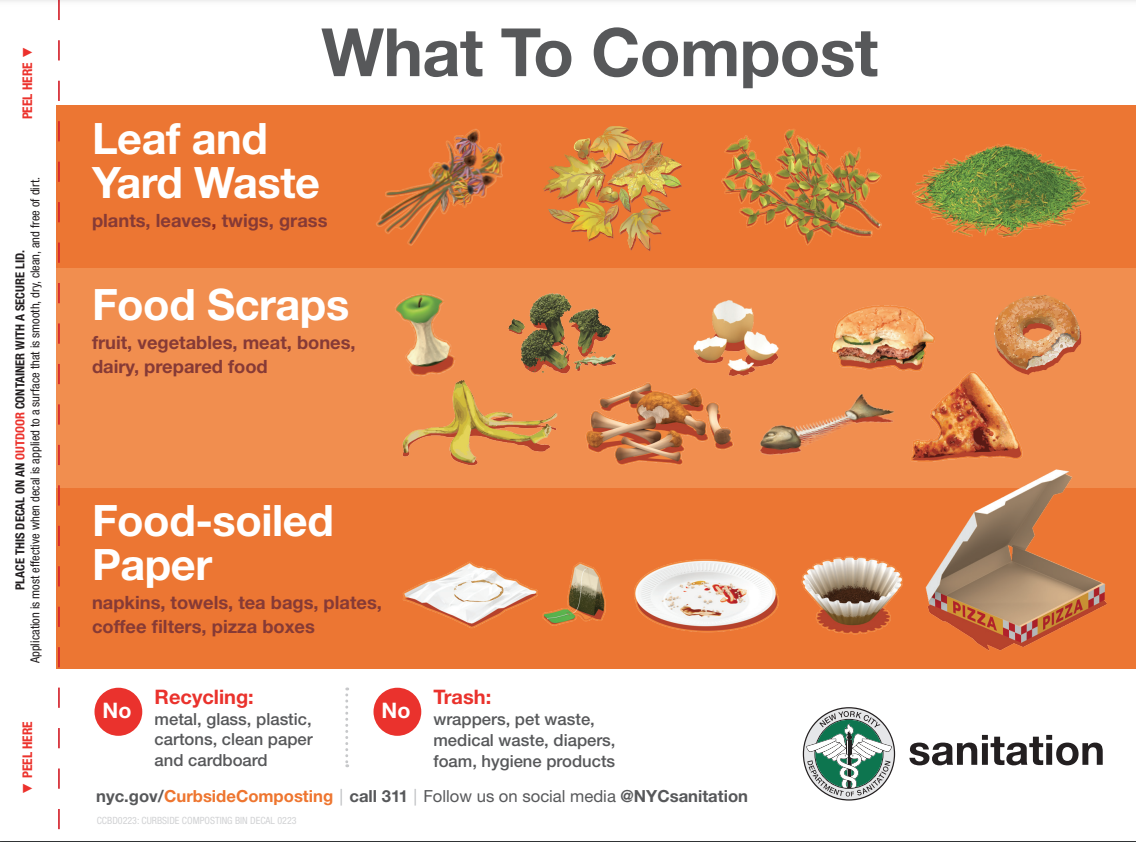
NYC What To Compost Decal.
Queens Leads NYC’s Revolutionary Composting Initiative
New York City Mayor Eric Adams and the Department of Sanitation (DSNY) Commissioner Jessica Tisch unveiled the nation’s most extensive curbside composting initiative. From October 3, every Queens resident will automatically receive weekly collection services for compostable materials like yard waste, food remnants, and soiled paper products. Queens, with 41% of the city’s street trees, becomes the first entire borough to enjoy this service.
Mayor Adams emphasized that this effort not only promotes cleaner streets but also battles climate change, establishing NYC as the U.S. leader in curbside composting. Deputy Mayor for Operations, Meera Joshi, mentioned this initiative’s alignment with the broader city cleanup, highlighting other steps like smart composting bins and a citywide containerization pilot.
DSNY Commissioner Tisch outlined the program’s design, focusing on its effectiveness, affordability, and inclusiveness. The system borrows from past successes and lessons, aiming to ease the process for New Yorkers while being environmentally friendly and pest-resistant.
DSNY’s innovative routing efficiencies allow servicing Queens, NYC’s largest borough, at unparalleled cost-efficiencies. Queens’ choice was strategic, given its diverse communities, housing types, and history of environmental neglect. The program covers all yard waste, food scraps, and soiled paper products, without any sign-ups. Residents will find collection schedules on DSNY’s website by mid-September.
Furthermore, to combat methane emissions from landfills, separating compostables is crucial. Approximately a third of NYC’s residential waste can be composted, benefiting both gardens and renewable energy production. The initiative also aims to reduce pests by using secure bins. Residents can order or label compost bins through the city’s online platform.
The service spans from October to December, halting during winter, and resuming in March 2023. History indicates yard waste as the major contributor during the initial phases. Additionally, the Adams administration is introducing 250 “smart” composting bins this fall, accessible via smartphones, after a successful 2021 pilot, targeting various boroughs with an emphasis on specific neighborhoods.
